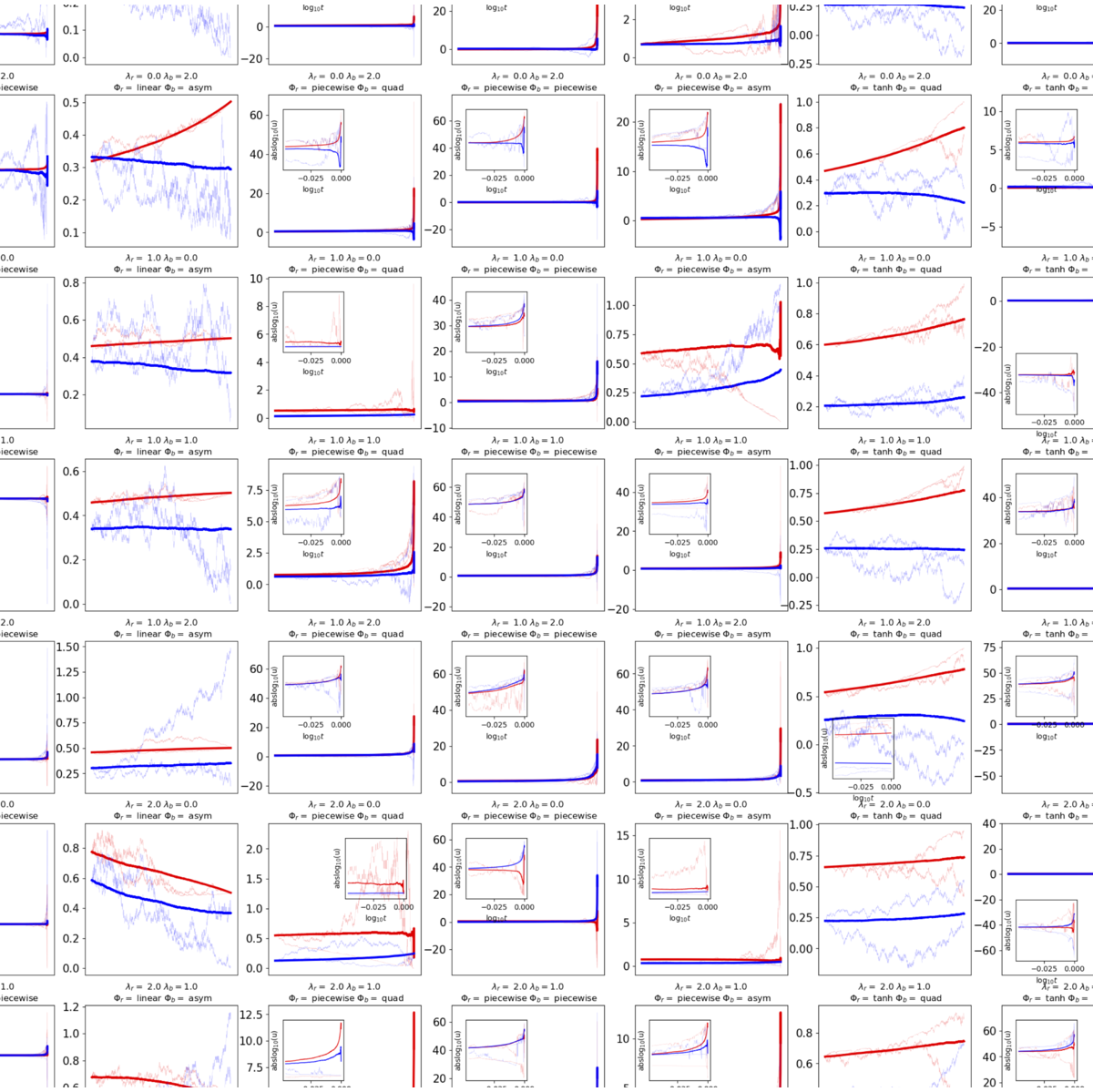Noncooperative dynamics in election interference
D. R. Dewhurst, C. M. Danforth, and P. S. Dodds
Physical Review E, 101, 022307, 2019

Times cited: 4
Abstract:
Foreign power interference in domestic elections is an age-old, existential threat to societies. Manifested through myriad methods from war to words, such interference is a timely example of strategic interaction between economic and political agents. We model this interaction between rational game players as a continuous-time differential game, constructing an analytical model of this competition with a variety of payoff structures. Structures corresponding to all-or-nothing attitudes regarding the effect of the interference operations by only one player lead to an arms race in which both countries spend increasing amounts on interference and counter-interference operations. We then confront our model with data pertaining to the Russian interference in the 2016 United States presidential election contest, introducing and estimating a Bayesian structural time series model of election polls and social media posts by Russian internet trolls. We show that our analytical model, while purposefully abstract and simple, adequately captures many temporal characteristics of the election and social media activity.
- This is the default HTML.
- You can replace it with your own.
- Include your own code without the HTML, Head, or Body tags.
BibTeX:
@misc{dewhurst2019b,
author = {Dewhurst, David Rushing and Danforth, Christopher M. and Dodds, Peter Sheridan},
title = {Noncooperative dynamics in election interference},
journal = {Physical Review E},
year = {2019},
volume = {101},
pages = {022307},
note = {Available online at \href{https://arxiv.org/abs/1908.02793}{https://arxiv.org/abs/1908.02793}},
}